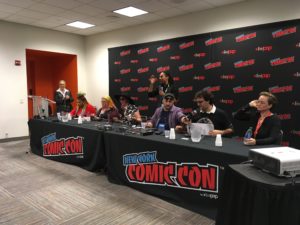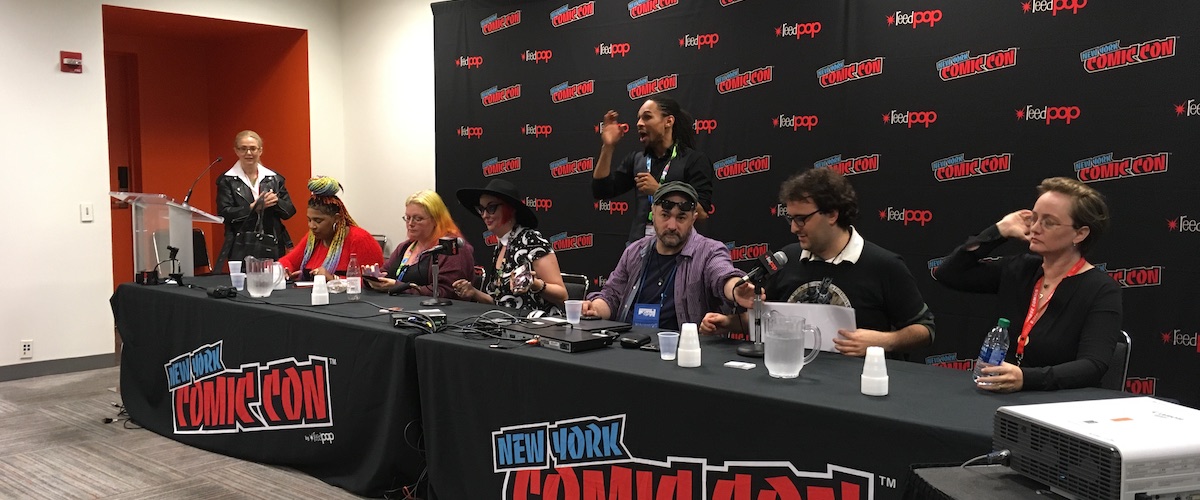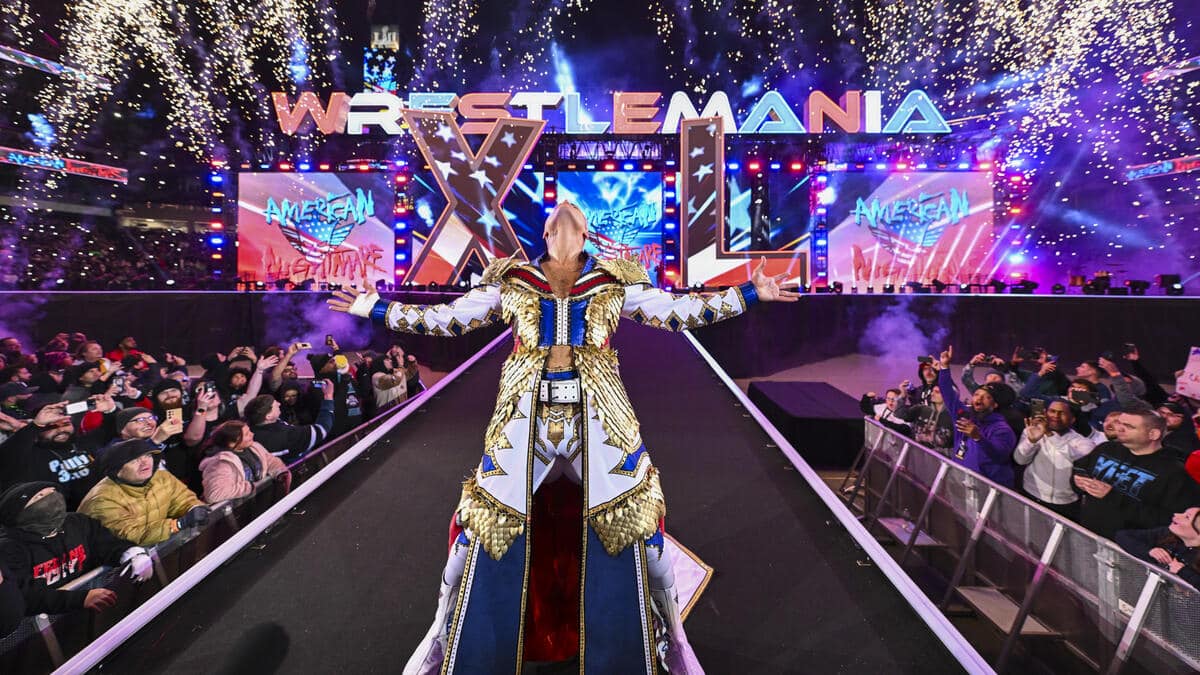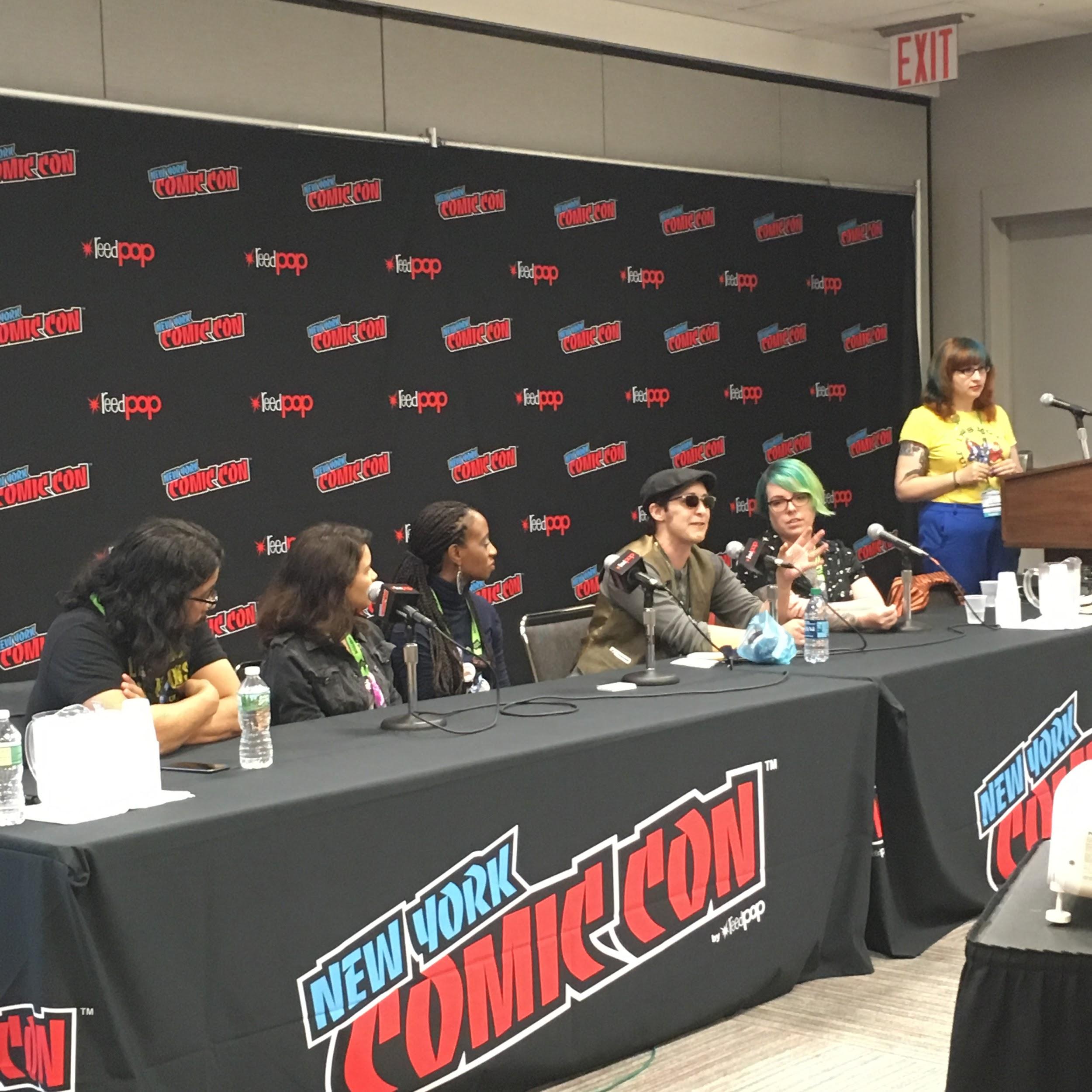By Adam Karenina Sherif

Doran began by thanking the panel for their candour as “not everybody is prepared to go public with their personal life.” She also remarked on how difficult it is to navigate a convention, and simultaneously how vitally important it is for creators to be on that circuit. She invited the panel to share some of the issues they face when navigating these crowded, overwhelming spaces.
Franklin spoke about bathroom access and the way people willfully invisibilize people with a disability to suit their own convenience. McGuire mentioned that as a disabled person, she feels she has to make herself smaller — and that riding a scooter through a crowd is “the most emotionally taxing thing.” She also described some of the microaggressions, derision, and outright abuse she has regularly faced.
Speaking about less visible conditions, Free detailed her anxiety and how it affects her ability to work conventions: “I have a fear of crowds, and I have had breakdowns, just trying to do my work and get to my meetings.” Earphones and music are a great help, she said.
Gallaher, who has profound epilepsy which affects his balance, asked for “better sensory warnings — whether that’s loud music, or flashing lights.” He also made a point to applaud ReedPop for having an ADA (Americans with Disabilities Act) entry line at the show this year.
McGuire followed this by suggesting that, unfortunately, “conventions like ReedPop don’t like to advertise their accessibility accommodations for fear they might be abused. Apparently 2 percent do take advantage, but that’s not a reason to make it tougher for people who need those provisions.”
Better provision, Fuscaldo added, would allow everyone to navigate “with dignity.”
When Doran moved the conversation onto the subject of relationships with publishers, she asked if the panelists had been treated differently after ‘coming out.’ The panel generally cited communication as key, but also emphasised the difficulties of showing both vulnerability and humility in a professional context.
Gallaher shared a profound reflection on both his working relationships and his own limits: “My diagnosis radically changed my life, but I’ve been fortunate that I’ve been given wiggle room in my work at DC because I’d come up with my editor when we were both interns at Marvel,” he said. “But generally when I’ve hidden what’s going on with me, the work has suffered. I’ve realised there’s a gap between what I want to believe I’m capable of, and what I’m actually capable of. And it’s really about asking yourself whether you want to suffer to get the work done. Nine times out of 10, it’s more important to focus on your self-care.”
Staggs likewise reflected that, “I’ve been fortunate to work with the best, most accommodating editors and the most supportive wife in Amanda Deibert.”
Free remarked on a tension in her relationships, saying, “You want to be communicative about yourself, but you also worry about your editors and publishers hearing about it. It’s hard: sometimes you don’t feel good, and you don’t want to do things, and you feel really sad.”
Franklin described a sense of being interrogated: “I’ve had questions asked from publishers about what’s wrong with me, and whether my condition will affect the work.” She added that she’d once missed an opportunity with Image when she fell into a coma, and wasn’t sure it would come her way again.
Despite these difficulties, the panelists were unanimous on the importance of boundaries, self-definition, and living without guilt or shame. McGuire framed it as, “You don’t owe anybody a disclosure unless it’s a professional commitment or a personal relationship.”
Stressing that nobody with an illness should feel obliged to satisfy anyone’s curiosity, Free powerfully stated, “It’s nobody’s fucking business what’s wrong with you.”
After sharing his experience of a particularly difficult seizure he endured on a flight, Gallaher added that he’s learnt “you also don’t owe anybody an apology for any inconvenience you might cause them.”
Finally, Doran prompted panelists to share some of the practical strategies they employ to manage their conditions and their work. She began herself by sharing that she has fixed windows where she allows herself access to social media “because it sends my anxiety off the scale.”
Clear definitions proved to be a shared theme. McGuire spoke of living “according to a series of checklists that are severe and deliberately inflexible” to help her navigate her Obsessive-Compulsive Disorder better. Gallaher mentioned tools like bullet journalling, a whiteboard, the Screen Timer phone app, and the Pomodoro technique of timed bursts of work punctuated by regular intervals for breaks. “Tools to help me visualize information,” he said, “and tools to manage my time.”
Others emphasised a social component. Fuscaldo shared that group therapy had really helped him hone his communication skills as someone on the Aspergers / Autism Spectrum. Staggs spoke of diet restriction being a lightswitch for her, and medication for her thyroid condition, but she also stressed how crucial it is to share her condition with her spouse: “My wife is a barometer for me; she’ll flag when I need to get checked.”
Doran was right to thank the panelists for their honesty. This conversation seemed to be cathartic for both the creators and many in the audience. It was also constructive, with practical tips, and a step towards normalizing candid discussions of disability and chronic illness in the industry.
Editor’s note: An earlier version of this misspelled David Gallaher’s name.








